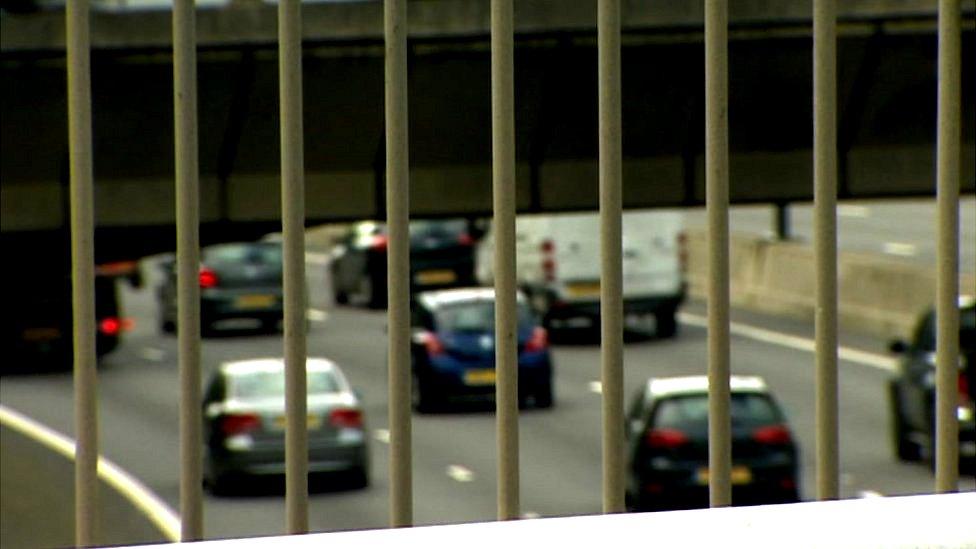Budget 2018: Extra £550m for Welsh Government, chancellor says
- Published
- comments
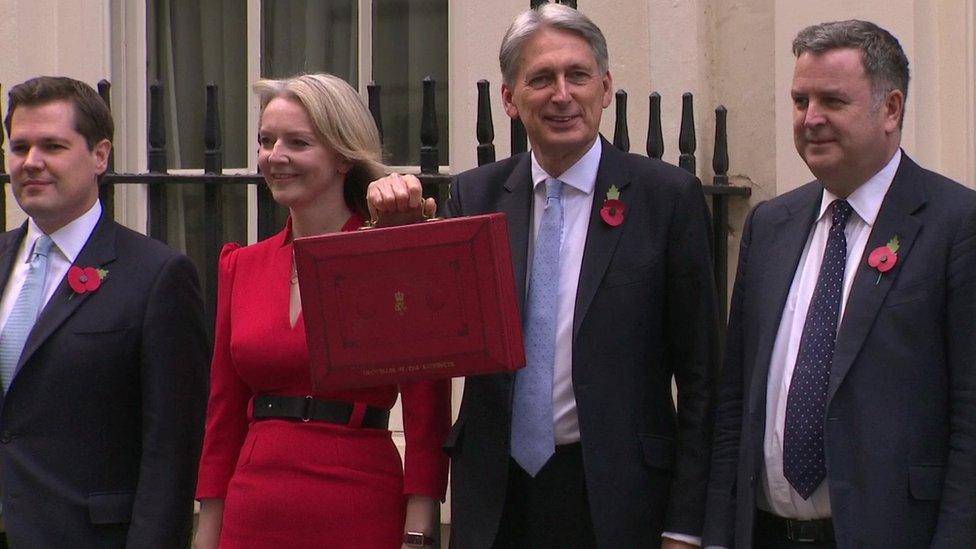
Philip Hammond announced £120m for the North Wales Growth Deal
The Welsh Government will receive an extra £550m over the next three years as a result of Monday's budget, the Chancellor Philip Hammond has said.
Spending decisions for public services in England mean services overseen in Cardiff will get £115.7m in 2018-19, and £425.9m in 2019-20.
Mr Hammond told MPs austerity was "coming to an end".
But that was rejected by the Welsh Government, which dubbed the budget "disappointing".
Welsh Finance Minister Mark Drakeford, who oversees a budget of £18bn, said the announcement showed there was no evidence austerity was ending.
Meanwhile the chancellor announced backing for the North Wales Growth Deal with £120m of separate funding.
The UK government will also review whether to extend Welsh ministers' £1bn borrowing powers by up to £300m to support the M4 relief road.
The Welsh Government will be able to choose how to spend the extra £550m money.
Ministers in Cardiff are under pressure from local government to boost council coffers after real-terms cuts were announced.
However £385.5m of the cash has come from increases to health and social care spending in England, rather than local government.
Anthony Hunt, Welsh Local Government Association finance spokesman, said: "It is essential that local services have first call on additional resources that flow".
Budget documents announced that the valleys will be one of the areas set to benefit from the first wave of a £200m scheme to "pilot innovative approaches to deploying full fibre internet in rural locations".
Welsh councils will also be given more freedom by ministers to build homes by removing the borrowing cap on housing, the UK government said.
It added ministers will ask firms and others in the mid-Wales region to bring forward proposals for a funding deal for the area.
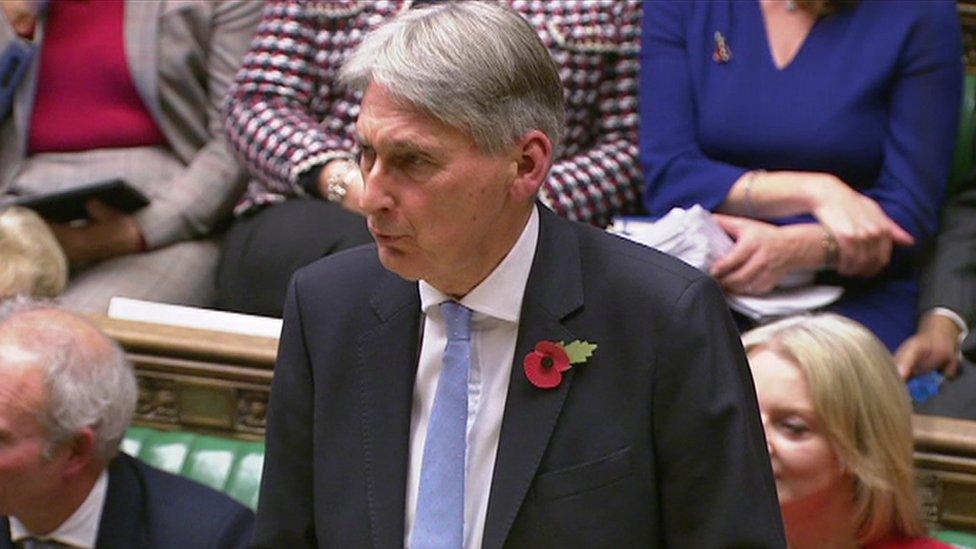
Adam Price called Philip Hammond's announcement a "fantasy budget"
"Today's budget shows the scale of ambition the UK government has for Wales," Welsh Secretary Alun Cairns said.
"From the clear support for a North Wales Growth Deal, reviewing borrowing capacity to deliver critical infrastructure projects, and the additional half a billion of spending power, this is a budget that clearly backs Wales's future prosperity."
But Mr Drakeford said: "Any suggestion this Conservative government's failed policy of austerity is over - as the prime minister claimed just a few weeks ago - on the evidence of this budget, is wrong.
"There is little else in the UK budget for Wales, besides confirmation of the 70th anniversary NHS funding consequential which we were already expecting and a few other crumbs from the table.
"At the very best this is a 'treading-water budget' while we await the outcome of Brexit negotiations."
He added that the "unilateral" announcement on the North Wales Growth Deal was "disappointing" as it fell "some way short of what we and the people of North Wales have been expecting".
The Welsh Government added that its budget for infrastructure was increasing by just £2.6m next year.

'Views differ dramatically at either end of the M4'
By Mark Hutchings, BBC Wales parliamentary correspondent
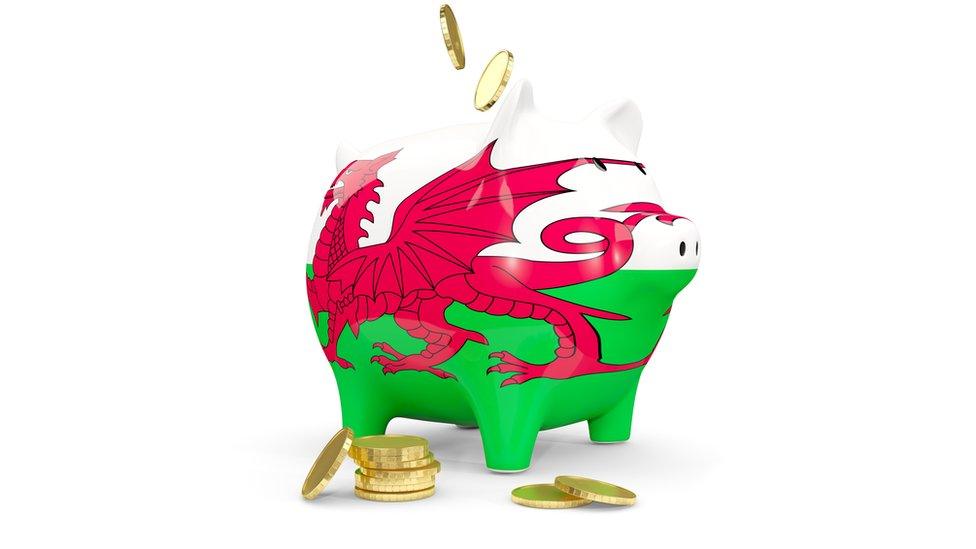
Could extra borrowing muscle help the M4 relief road come to fruition?
Triumph or flop? Ministerial views on this budget inevitably differ dramatically between the governments at either end of the existing M4.
For the Secretary of State Alun Cairns, extra borrowing muscle for Wales should kick-start the Welsh Government into pressing ahead with plans for the controversial M4 relief road.
And Mr Cairns is confident the budget will also trigger investment in north Wales in the much-discussed growth deal.
The Welsh Government's Finance Secretary Mark Drakeford must now work with the hand he's been dealt by the Treasury. Welsh councils have already been told that they are "first in the queue" when extra cash is dished out.
For now, Mr Drakeford insists he can find no evidence in the figures in front of him that austerity is ending as a result of what he calls a "jam-tomorrow" budget.

'Fantasy'
Plaid Cymru leader Adam Price called the announcement a "fantasy pre-Brexit budget based on imaginary numbers".
"Wales remains an afterthought for Westminster, with transformative infrastructure projects in our nation scrapped for the sake of feeding the overheating economy of the south east of England," he said.
Many of the announcements in the budget that do not relate to Wales specifically still affect people here.
An extra £2.7bn has been added to universal credit following criticism of the benefit, while the income tax personal allowance will rise to £12,500.
The North Wales Growth Deal aims to create 5,500 jobs and bring £671m investment to the region.
Projects include improving the availability of land and property.
The North Wales Economic Ambition Board, which is leading the growth deal bid, said the announcement of UK government money meant it "can now enter into the final stage of discussions".
"Today's announcement gives us a strong basis on which to move forward and attract extra funding from the Welsh Government and additional sector programmes and finance streams," it added.

Analysis - Sarah Dickins, BBC Wales economics correspondent
While the big change in the budget is the increase in public spending, after years of austerity for many low paid households in Wales there are a number of changes that will help a little, but not change their living standards significantly.
The chancellor's budget eases the transition into controversial Universal Credit. 350,000 claimants in Wales are expecting to be moved on to UC in the near future and now the work allowance for those with children and disabilities will rise by £1,000.
Similarly, adults on the National Living Wage will see earnings rise to £8.21 an hour, an increase of £690 a year. The latest official figures on earnings show not only that in Wales we have some of the lowest income in the UK, but also that typical wages in Wales only rose by 2.1% last year, still barely keeping up with inflation after years of wages shrinking in real terms.
The chancellor has increased the amount you can earn before you pay income tax to £12,500 in April. That would mean a basic rate taxpayer, of which there are 1.2 million in Wales, will be paying £1,205 less income tax than in 2010-11. The higher rate tax will be paid when individuals earn £50,000. In Wales there are only about 125,000 people paying that rate.
The debate continues about who really benefits from raising the rate at which people start to pay tax. Anti-poverty campaigners say it's the richest who benefit the most, while politicians in favour of it talk about lifting people out of tax paying.
- Published29 October 2018
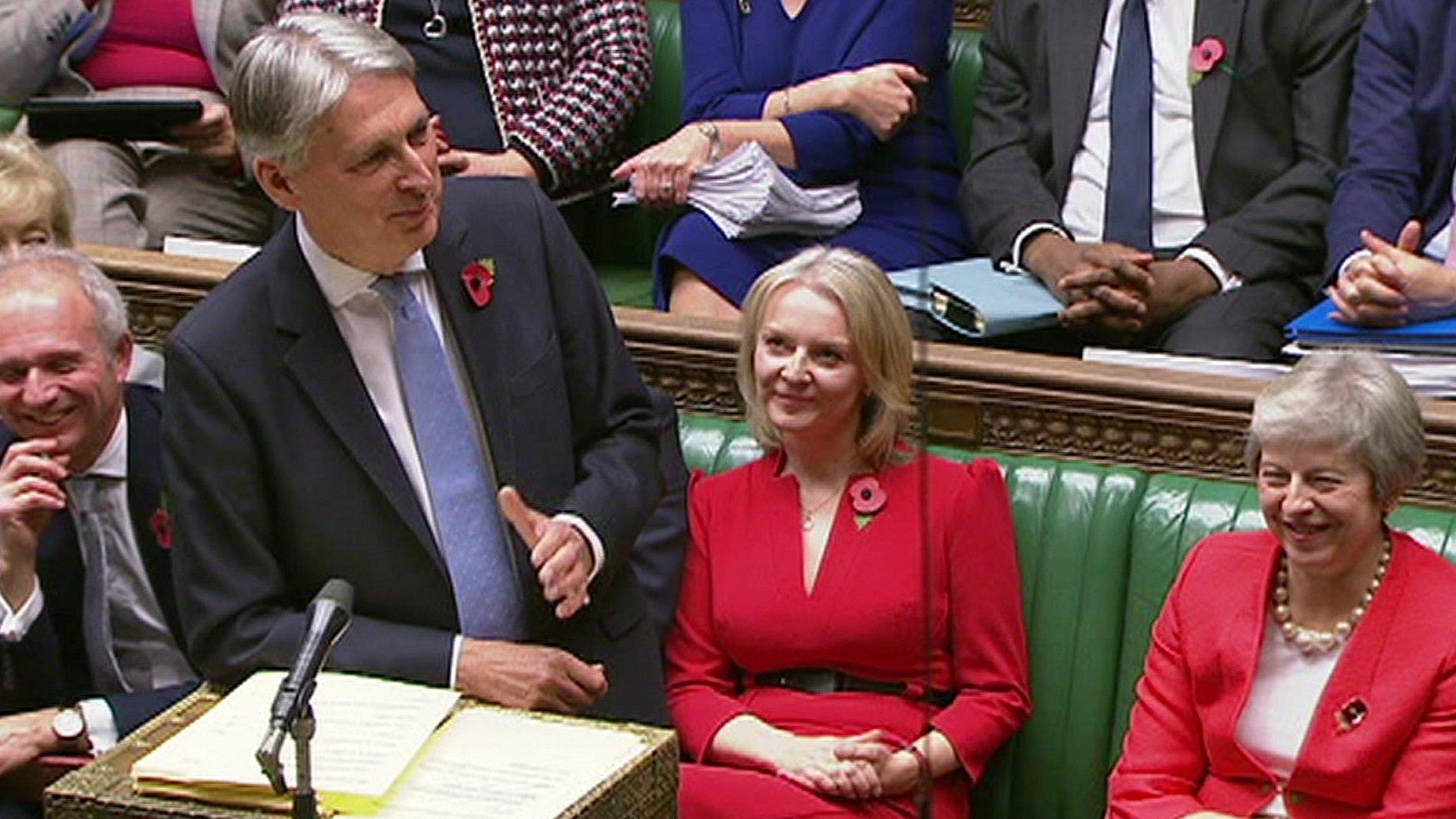
- Published28 October 2018
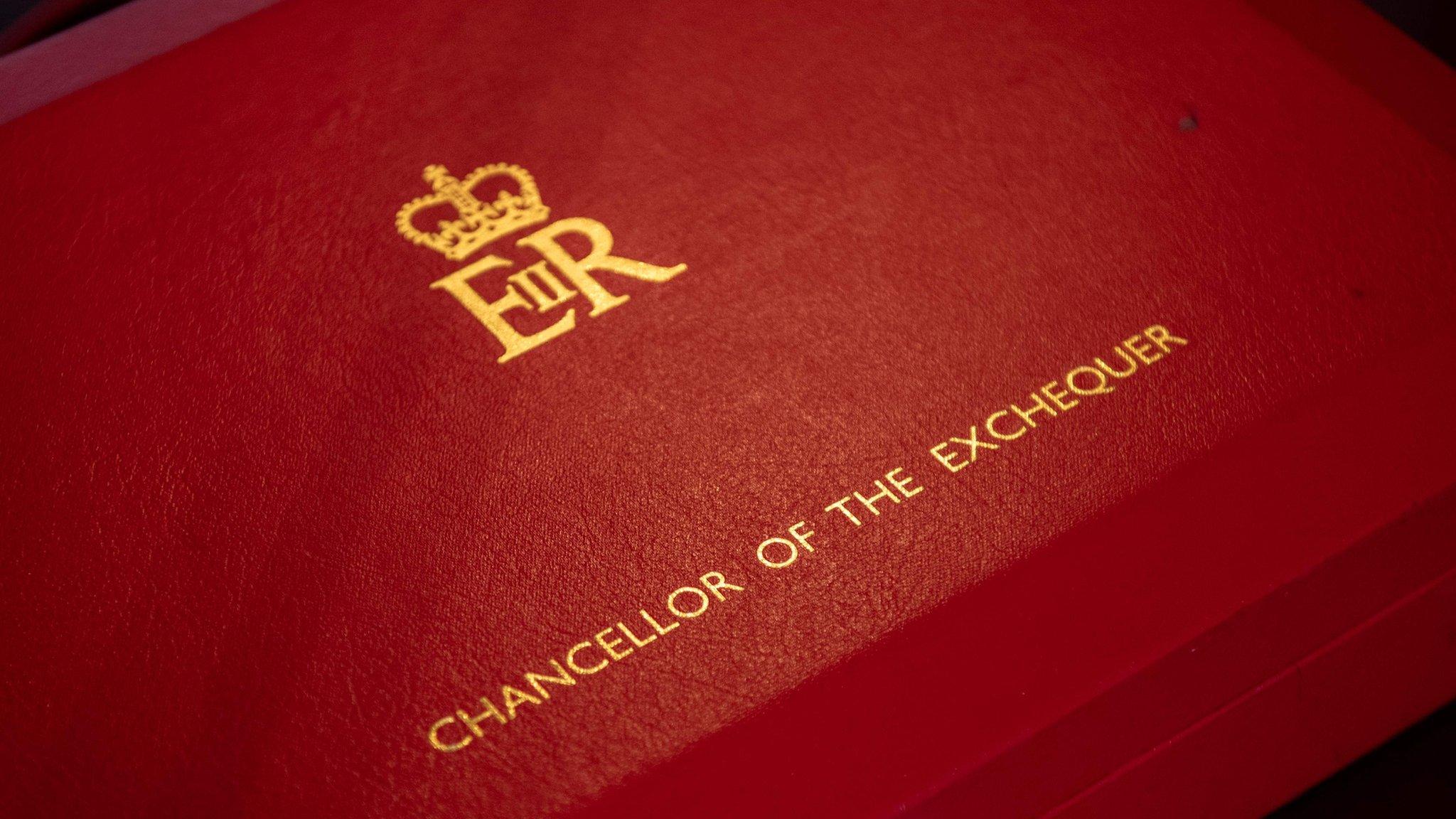
- Published28 October 2018
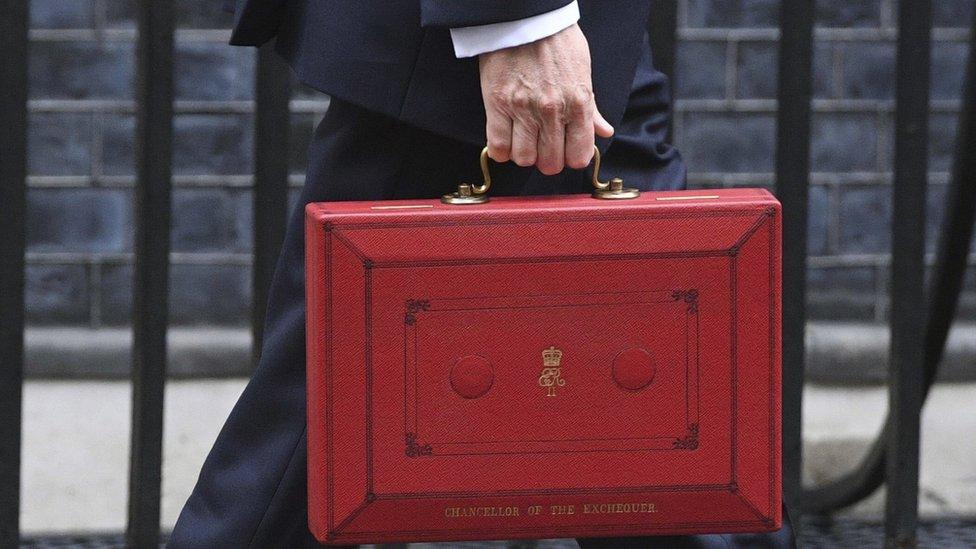
- Published28 October 2018
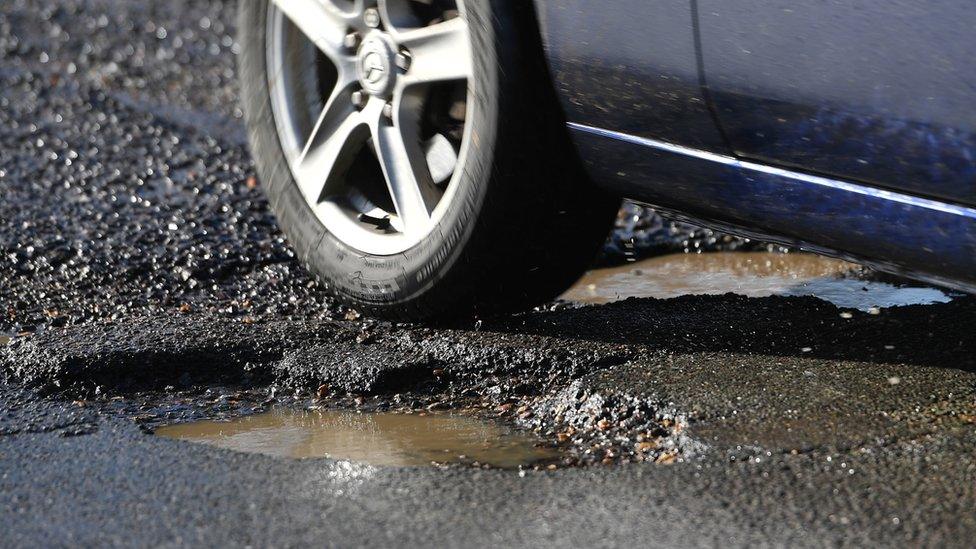
- Published23 October 2018

- Published23 October 2018
